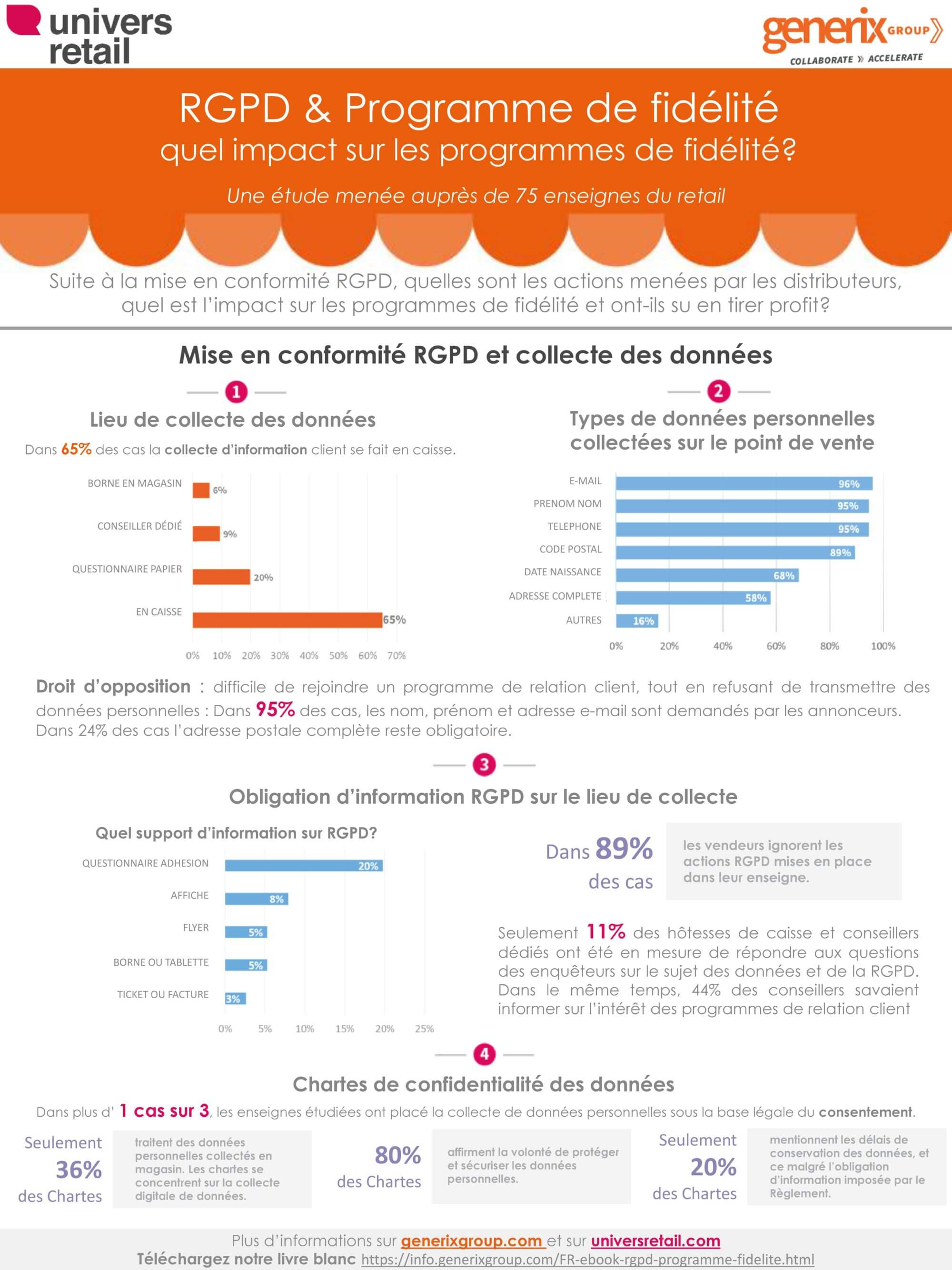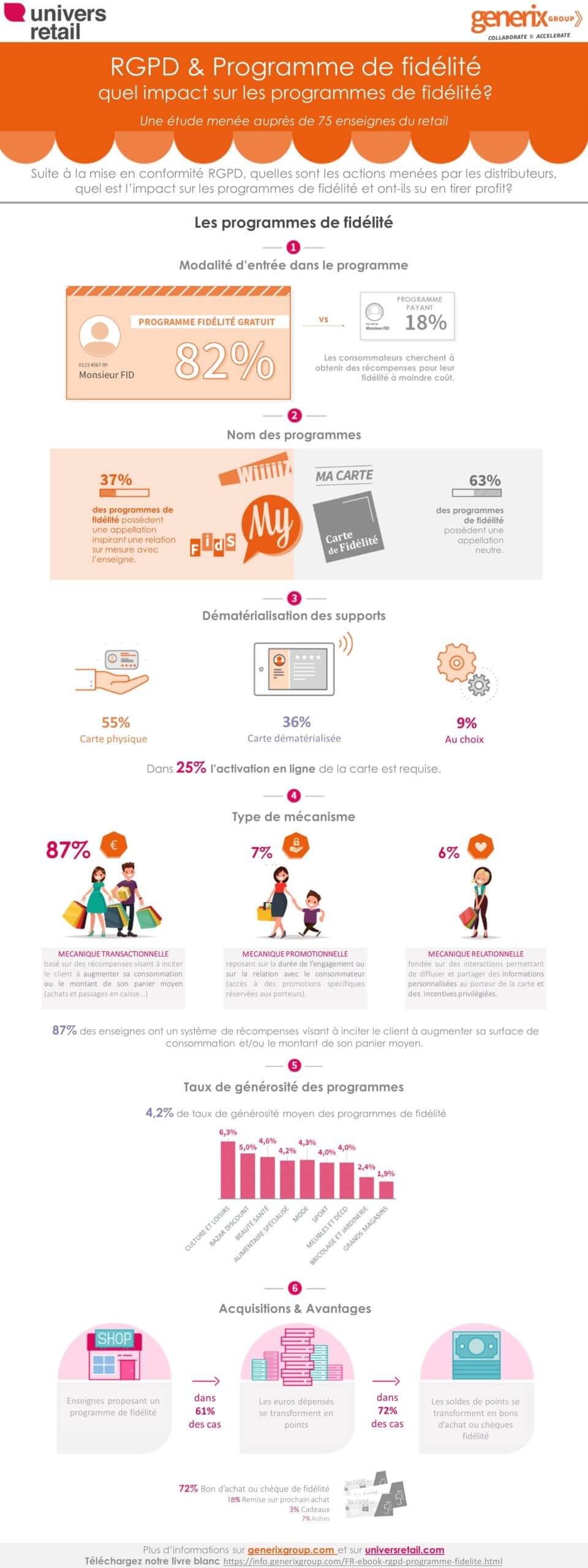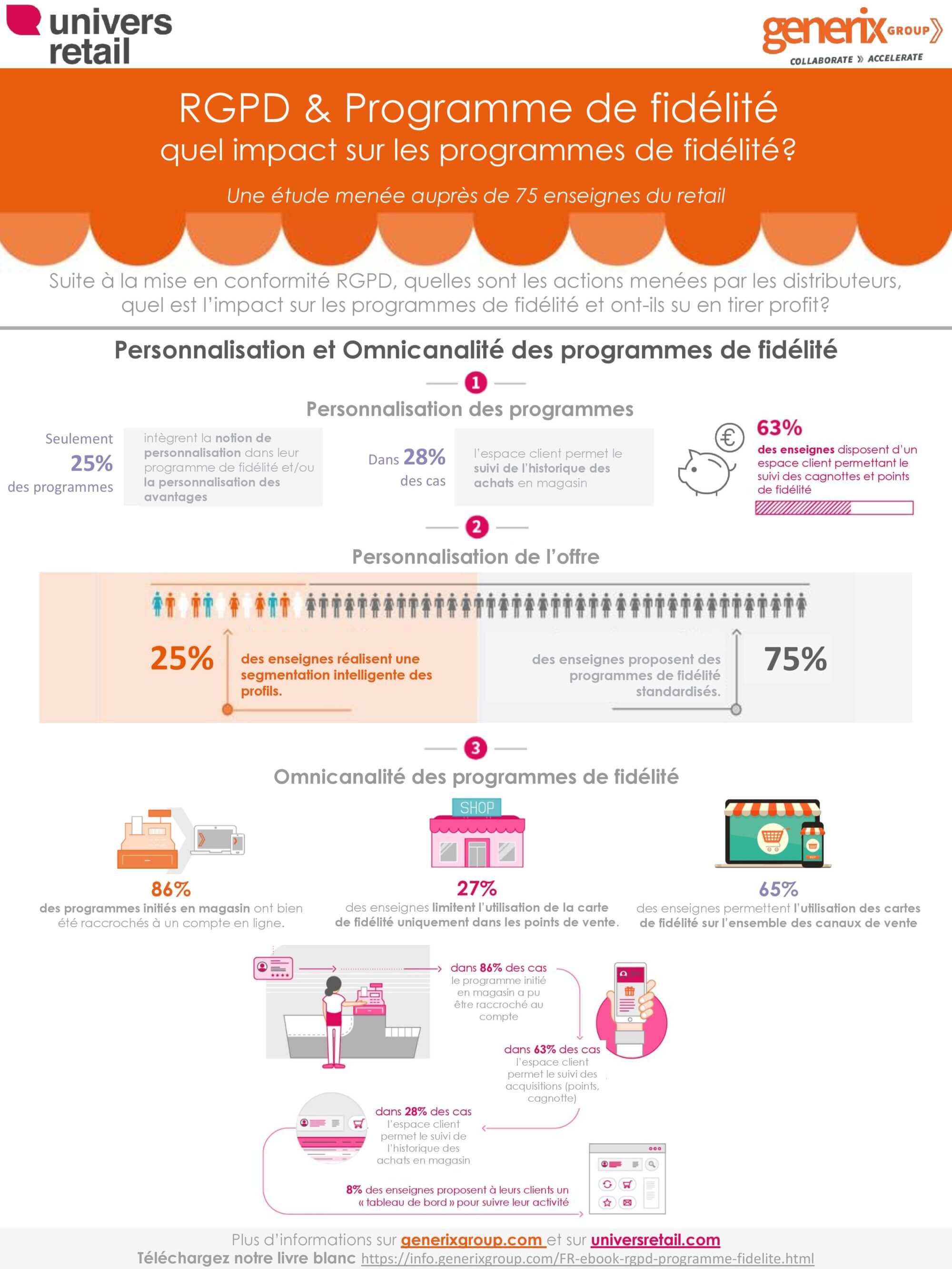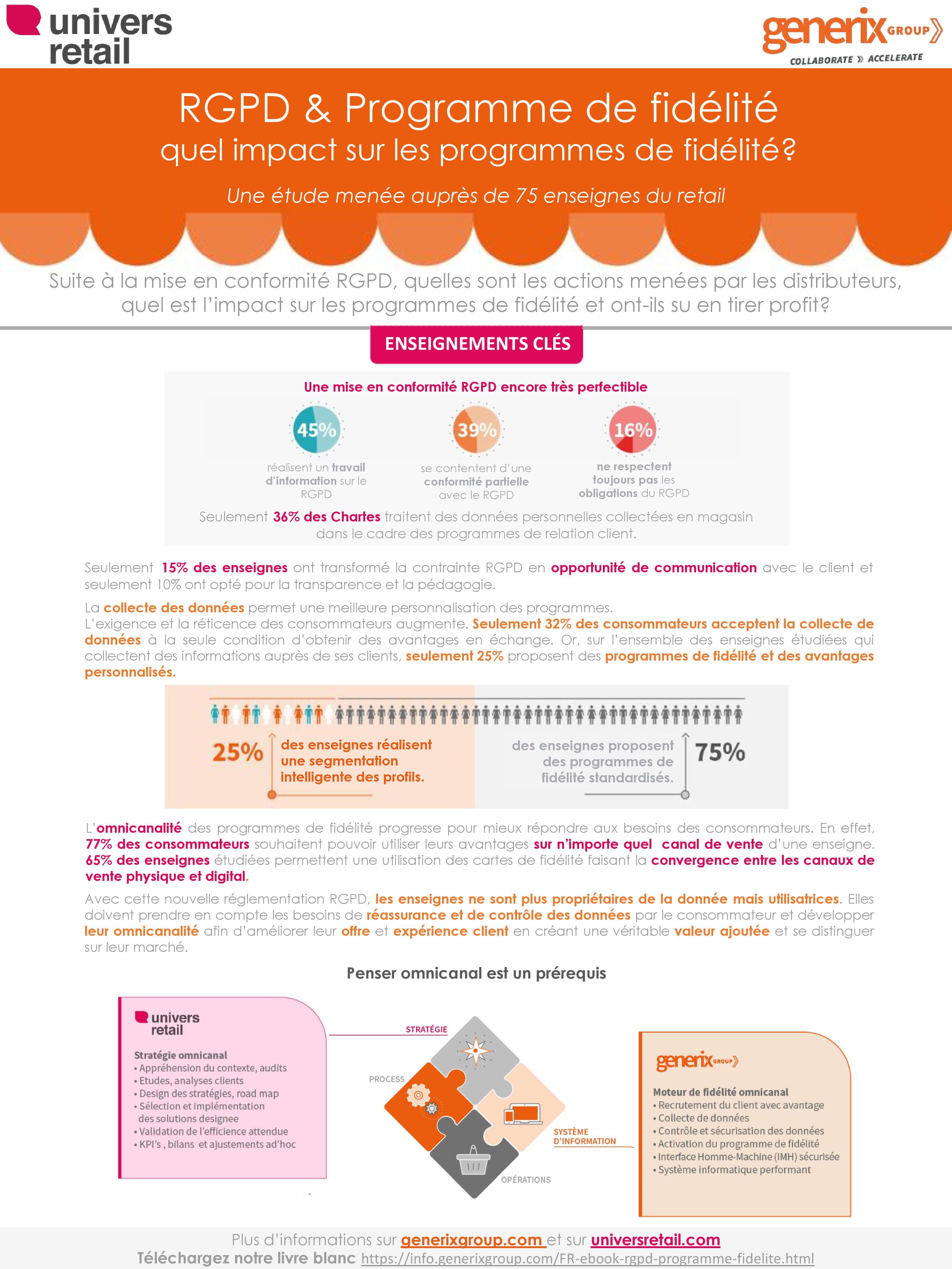RGPD hasn't killed loyalty, the best is yet to come!
Given that 80% of retailers offer a loyalty card1, this remains an important generator of traffic and sales. However, while the popularity of loyalty cards remains strong, it masks a degree of dissatisfaction on the part of customers, who consider the programs often lacking in differentiation, too transactional and not generous enough.
As a result, 77%2of consumers expect personalized discounts, offers that correspond to their consumption habits, and demand rewards whether their purchases have been made in-store, on the website or via a mobile app. Omnichannel is no longer an option.
Nevertheless, personalized promotions require in-depth analysis of consumer purchasing behavior via the capture of personal data generally carried out in-store. All these processing operations fall within the scope of the General Regulation on the Protection of Personal Data (RGPD), which came into force in May 2018.
Following this RGPD compliance: what actions have retailers taken, what is the impact on loyalty programs and have they been able to take advantage of it?
To answer these questions, Univers Retail, and Generix Group* have conducted the first post-RGPD survey of 75 retailers from the food and specialist retail sectors in France.
*Publisher of SAAS solutions dedicated to collaborative supply chains and omnichannel sales
1.Vertone study - 2016
2. Nielsen study - 2016
Find key figures, best practices by brand, our analyses and much more...
"Retailers need to integrate the true scope of omnichannel into their corporate strategy, so that their loyalty programs are in line with their customers' expectations and a strong marker of their brand identity."
Cyril Villory - Manager Retail Universe
Our "RGPD & Loyalty Programs" study in infographic
This study focuses on personal data collected in-store when customers join a "loyalty program", whether or not the program is supported by a card. The scope excludes payment card subscriptions. 75 representative food and specialist retailers were selected: 95% were involved in e-commerce; 50% are international companies based in Europe, and 42% are part of a multi-brand group.
We have chosen to orient this study along 2 axes:
> Take stock of compliance with the requirements of the RGPD, more than a year after it came into force.
> Decipher the relationship programs offered to consumers: in-store data collection systems, the generosity of these programs, their omnichannel reality and the expected role of information systems.
These results reveal some major trends:
> Collecting data allows us to better personalize our programs.
> The relationship programs offered to consumers only partially exploit the range of interactions offered by omnichannel.
Discover the results of our survey in our 4-part infographic:
Further information
Discover a summary of our study "RGPD 1 year on, what impact on loyalty programs?" carried out in partnership with Generix Group, this conference took place in September 2019 during Paris Retail Week.
Part 1
Part 2




